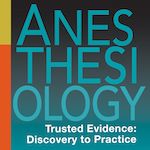 Anesthesia
Anesthesia
Data cast doubt on recommendation to delay weight-loss meds prior to surgery

Editor's Note A recent analysis of insurance claims data suggests weight-loss medications like Ozempic (semaglutide), Trulicity (dulaglutide), and other glucagon-like peptide-1 (GLP-1) receptor agonists do not increase risks associated with undergoing anesthesia. As reported April 22 in MedPage Today, these finding that contradicts a June 2023 recommendation from the American Society of…
Private equity healthcare ownership draws new scrutiny

Editor's Note Over the last 10 years, private equity has taken over many of the nation’s health care facilities—from hospitals to nursing homes to physician practices—spending $1 trillion and instituting changes designed to rapidly increase profits, NBC News reported April 9. Studies have found that these takeovers can have serious…
Penn Medicine anesthesia, waste initiatives boost OR sustainability

Editor's Note Penn Medicine has made significant strides in reducing the environmental footprint of the OR through department- and team-level initiatives, according to a March 29 report in Penn Medicine news. Driven by CIRCE: Medicine, a faculty group consisting of providers from Penn Medicine and Children’s Hospital of Philadelphia, examples…
Drug shortages higher than ever

Editor's Note Shortages of active drugs in the US have reached a new record, according to an April 12 CNN report on data from the American Society of Health-System Pharmacists and the University of Utah Drug Information Service. The two organizations have been tracking this data since 2001, the CNN report says.…
Propofol anesthesia for colonoscopy could help find polyps, prevent cancer

Editor's Note By putting the patient into deeper sedation during colonoscopy, propofol could help doctors find difficult-to-spot, potentially cancerous “serrated” polyps, according to a study published April 17 in Anesthesiology. As an alternative to moderate, “conscious” sedation, propofol facilitates a more thorough exam that is more likely to identify serrated…
Federal regulations require written consent for pelvic exams at hospitals, medical schools

Editor's Note New federal guidelines require obtaining written informed consent before conducting pelvic and other sensitive medical examinations, according to an April 2 Associated Press report. The new guidance from the US Department of Health and Human Services focuses specifically on medical students, nurse practitioners, and physician assistants performing breast,…
Anesthesiologists push to improve pain control during caesarean delivery

Editor's Note A letter to the editor published April 10 in Anesthesiology, the official publication of the American Society of Anesthesiologists (ASA), calls attention to an official statement outlining best practices for ensuring all moms-to-be receive adequate pain management during planned or unexpected C-sections. The best practices are outlined in…
ASA annual meeting highlights top 10 risks of providing anesthesia in ambulatory setting

Editor's Note There are certain patients and clinical situations that may require anesthesiologists to say no to performing surgery in the outpatient/ambulatory setting, Anesthesiology News April 4 reports. At the 2023 annual meeting of the American Society of Anesthesiologists (ASA), BobbieJean Sweitzer, MD, a professor of medical education at the…
Study shows patient bias for general over regional anesthesia, importance of preoperative education

Editor's Note A recent study from the UK, the results of which were presented at the 6th annual World Congress on Regional Anaesthesia and Pain Medicine, shed light on patients' preferences and understandings regarding anesthesia options for outpatient orthopedic surgery, Anesthesiology News March 18 reports. It revealed a stronger expectation…
Prioritizing quality of life: Surgery, anesthesia considerations for elderly patients

Editor's Note A March 11 article on SeniorLiving.org broke down key considerations and risks for elderly patients undergoing surgery and anesthesia. One such consideration is studies show that older adults often prioritize quality of life over the extension of life if it means sacrificing independence or functional abilities. Other lessons…

 Free Daily News
Free Daily News